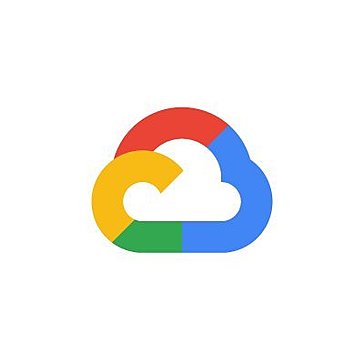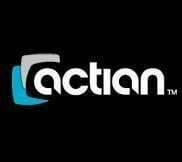Description

Apache OODT

ObjectBox
Comprehensive Overview: Apache OODT vs ObjectBox
Apache OODT and ObjectBox serve different purposes and target different markets within the technology landscape. Below is a comprehensive overview of each:
Apache OODT
a) Primary Functions and Target Markets
Primary Functions:
- Data Management: Apache Object Oriented Data Technology (OODT) is an open-source data management system designed to handle the processing, cataloging, and retrieval of scientific data and metadata.
- Workflow Management: It provides tools for constructing and managing complex data processing workflows.
- Data Curation: Supports the ingestion and archiving of data, allowing organizations to manage data lifecycles effectively.
- Catalog and Archive Service: Helps in organizing and locating datasets through metadata, facilitating data sharing and discovery.
Target Markets:
- Science and Research Institutions: Originally developed by NASA, OODT is extensively used in space missions, Earth science data processing, and astronomy.
- Government and Aerospace: Facilitates the management of large-scale data systems, particularly in sectors dealing with extensive data volumes like defense.
- Healthcare and Life Sciences: Used for managing medical data and supporting research activities.
b) Market Share and User Base
- Market Share: Apache OODT is a niche product strongly entrenched in scientific and government sectors, where handling complex datasets is crucial.
- User Base: It has a narrow but dedicated user base comprising government agencies, research institutions, and large corporations dealing with scientific data.
c) Key Differentiating Factors
- Domain Focus: OODT is specifically tailored toward handling scientific data, making it ideal for applications needing intricate data workflows and rigorous data management standards.
- Open-Source and Customizable: Being part of the Apache Software Foundation, it benefits from community-driven development and extensive customization possibilities.
- Integration with Scientific Tools: Designed to integrate with scientific data processing systems, enhancing its functionality for its target markets.
ObjectBox
a) Primary Functions and Target Markets
Primary Functions:
- Database Management: ObjectBox is a database engine focused on fast and efficient data storage and retrieval for mobile, IoT, and edge devices.
- Data Synchronization: Offers features for synchronizing data efficiently between devices and the cloud.
- Object-Oriented Approach: Provides an object-oriented API that simplifies database interactions, particularly beneficial for developers working in object-oriented programming environments.
Target Markets:
- Mobile Application Developers: Primarily targets developers creating Android and iOS applications that require efficient local data storage.
- IoT and Edge Computing: Ideal for IoT solutions needing lightweight, high-performance data storage on edge devices.
- Startups and Small to Medium Enterprises (SMEs): Particularly appealing to organizations needing cost-effective and high-performance data management solutions.
b) Market Share and User Base
- Market Share: Competes in the database market alongside other embedded databases like SQLite and Realm.
- User Base: ObjectBox is popular among mobile and IoT developers, with a growing community as its adoption increases across various tech industries.
c) Key Differentiating Factors
- Performance: Known for its high-speed data processing capabilities, particularly advantageous for mobile and IoT applications where performance is critical.
- Ease of Use: Its object-oriented API makes it developer-friendly, reducing the complexity of adding database functionalities to applications.
- Cross-Platform Synchronization: Provides built-in capabilities for data synchronization across platforms and devices, setting it apart from many local database solutions.
Overall Comparison
- Functionality Focus: OODT is centered on data management and workflow automation for scientific and research contexts, while ObjectBox is tailored for fast, efficient data handling in mobile and IoT environments.
- User Base: OODT caters to a more specialized audience in the scientific community, whereas ObjectBox appeals to a broader range of developers in the mobile and IoT sectors.
- Technological Approach: OODT provides extensive data processing and metadata management capabilities, whereas ObjectBox focuses on speed and simplicity in database operations.
In summary, although both Apache OODT and ObjectBox are data management solutions, their applications and target markets are quite different, with each excelling in its specialized domain.
Contact Info

Year founded :
Not Available
Not Available
Not Available
Not Available
Not Available

Year founded :
2015
Not Available
Not Available
Germany
http://www.linkedin.com/company/objectbox
Feature Similarity Breakdown: Apache OODT, ObjectBox
Apache OODT and ObjectBox are quite different technologies, making a direct feature similarity breakdown somewhat challenging. Apache OODT (Object-Oriented Data Technology) is a data management system widely used for large-scale data applications, while ObjectBox is a database designed primarily for lightweight, high-performance operations on mobile and IoT devices. Despite their different core functions, we can attempt to find some commonalities and differences based on their generic capabilities and purposes.
a) Core Features in Common
-
Data Management:
- Both Apache OODT and ObjectBox involve managing data, though on different scales and for different use cases.
-
Scalability:
- Apache OODT and ObjectBox offer scalability options to handle increasing amounts of data. Apache OODT scales for large-scale data applications, and ObjectBox is designed to be efficient even when data needs grow on resource-constrained devices.
-
Cross-Platform Support:
- Both tools can operate across different environments. OODT can be deployed on a variety of cloud and on-premises platforms, whereas ObjectBox can work on multiple IoT devices and is supported across different mobile operating systems.
b) User Interfaces Comparison
-
Apache OODT:
- Apache OODT does not have a dedicated graphical user interface out-of-the-box, as it is primarily a backend system focused on data processing and management through programmatic interfaces and web services.
-
ObjectBox:
- ObjectBox provides a developer-friendly API and an intuitive object-oriented database management experience, which can be directly integrated within applications, especially in mobile development environments. It focuses on ease of use with simple setup and operations, catering more towards developers.
c) Unique Features
-
Apache OODT:
- Data Integration and Workflow Management: OODT excels with its ability to integrate and manage data workflow in large and distributed environments. It provides tools for metadata management and harnesses data processing pipelines, making it ideal for scientific data processing and modeling tasks.
- Domain Agnostic: OODT is designed to be domain-agnostic, supporting a wide variety of use cases, particularly in handling complex scientific data.
-
ObjectBox:
- High Performance: ObjectBox is designed for high-performance database operations suitable for mobile and IoT environments. It optimizes for speed with the use of minimal resources, focusing on offline capabilities.
- Automatic Object Schema Migration: ObjectBox includes powerful schema management to assist with automatic schema migration, reducing developer overhead when evolving application data models.
In summary, the core commonality between Apache OODT and ObjectBox lies largely in their data management capabilities and scalability, but their application domains and interfaces are quite dissimilar. Apache OODT is suited for large-scale complex data environments, while ObjectBox targets high-performance, low-overhead use on mobile and IoT devices. Each has unique features that set them apart based on their targeted use cases.
Features

Data Management
Data Handling
Monitoring and Reporting
Workflow Automation

Database Efficiency
Scalability
Ease of Use
Data Sync
Best Fit Use Cases: Apache OODT, ObjectBox
Apache OODT and ObjectBox are both open-source software solutions designed to handle different types of data management tasks, but they cater to different use cases and business needs. Here's a detailed look into their best fit use cases:
a) For what types of businesses or projects is Apache OODT the best choice?
Apache OODT (Object-Oriented Data Technology) is mainly designed for large-scale data management and processing, with a focus on scientific data systems. It is particularly useful in scenarios where complex data ingestion, cataloging, and processing workflows are required.
-
Scientific Research Projects: OODT was developed by NASA's Jet Propulsion Laboratory, making it ideal for scientific research projects that deal with large volumes of data, such as earth sciences, astrophysics, and space missions.
-
Enterprises with Complex Data Workflows: Businesses in sectors like oil and gas, healthcare, or any technology-driven company that needs to manage and process large datasets across distributed environments can benefit from OODT's robust workflow management capabilities.
-
Data-Centric Organizations: Organizations focusing heavily on data collection, archiving, and processing, such as government agencies involved in environmental monitoring or climate research, can leverage OODT to streamline these processes.
-
Multi-Institutional Collaborations: Projects that involve collaborations between multiple institutions or researchers, who need a cohesive system to manage shared data and processing workflows, will find OODT’s data sharing and integration features highly beneficial.
b) In what scenarios would ObjectBox be the preferred option?
ObjectBox is a high-performance database that's designed for mobile and IoT applications, with a strong focus on ease of use and efficiency.
-
Mobile Application Development: ObjectBox is ideal for developers building Android and iOS applications that require fast and efficient local data storage. Its lightweight nature ensures it doesn’t bloat applications.
-
IoT Solutions: Given its low-latency and small footprint, ObjectBox is well-suited for IoT applications where devices have limited resources but need reliable and rapid data persistence.
-
Startups and Small Enterprises: Startups and smaller companies developing new mobile or smart device applications can benefit from ObjectBox’s simplicity and efficiency, which allows quick iteration and focus on core product features.
-
Edge Computing: In scenarios where data processing needs to happen close to the source (at the edge), such as smart sensors or connected vehicles, ObjectBox provides a performant local database solution that minimizes latency and bandwidth usage.
d) How do these products cater to different industry verticals or company sizes?
-
Apache OODT is more aligned with medium to large enterprises, particularly those in scientific, governmental, and research-oriented sectors. It is suitable for organizations with significant IT resources, given its capabilities for handling complex data-processing needs across distributed systems. Industries that manage big data, require comprehensive data governance, and operate in highly-regulated environments will find its features advantageous.
-
ObjectBox caters to a broad range of industries by providing a solution for efficient data handling on devices with constrained resources. Its ease of use makes it accessible for small to medium-sized enterprises and developers who are working with mobile apps or IoT devices. Industries like retail (for apps), automotive (for connected vehicles), and consumer electronics (for smart home devices) can greatly benefit from its features.
Both solutions are open-source and come with strong community support, but they target fundamentally different needs—OODT for complex, large-scale data workflows and ObjectBox for high-performance, resource-constrained local storage.
Pricing

Pricing Not Available

Pricing Not Available
Metrics History
Metrics History
Comparing teamSize across companies
Conclusion & Final Verdict: Apache OODT vs ObjectBox
When evaluating Apache OODT and ObjectBox, it is essential to consider their intended use cases, performance, community support, scalability, complexity, and ease of use. Both are open-source software tools but geared towards different purposes.
a) Best Overall Value
ObjectBox offers the best overall value for developers needing a high-performance, lightweight, and easy-to-use database for mobile and IoT devices. Its high-speed data storage and retrieval, efficiency, and minimal memory footprint make it excellent for mobile app developers who prioritize performance and ease of integration.
b) Pros and Cons
Apache OODT
Pros:
- Scalability and Flexibility: Designed for managing large-scale data systems, OODT provides robust tools for data workflow management, file management, and metadata extraction.
- Community and Support: As an Apache Software Foundation project, it benefits from a well-established community and extensive documentation.
- Extensibility: OODT's modular architecture allows customization and integration with various backend systems.
Cons:
- Complexity: Due to its comprehensive capabilities, OODT can be challenging to set up and configure for those not familiar with data systems architecture.
- Niche Application: Primarily beneficial for enterprises and projects that require complex data management solutions, which means it might be overkill for smaller applications.
ObjectBox
Pros:
- Performance: Known for its high-speed database operations with minimal resource consumption, ObjectBox shines in applications where performance is critical.
- Simplicity and Ease of Use: ObjectBox's straightforward API and quick setup make it accessible to developers with varying levels of expertise, especially for mobile app development.
- Size and Footprint: Its compact library size is ideal for mobile and embedded devices where storage space is a concern.
Cons:
- Limited Scalability for Large Systems: While ObjectBox performs well with smaller datasets, it may not scale as effectively as Apache OODT for handling massive data management projects.
- Relatively Niche Community: Although growing, it doesn't have as extensive a support base or ecosystem as some larger, more established data management systems.
c) Recommendations for Users
For users deciding between Apache OODT and ObjectBox, it is crucial to consider the specific requirements of their project:
-
Use Apache OODT If:
- You require a robust system for managing large-scale data workflows and metadata.
- Your project involves complex data operations that necessitate high scalability and flexibility.
- The team has expertise or is willing to invest time in understanding OODT’s architecture and deployment.
-
Use ObjectBox If:
- You are developing performance-sensitive applications on mobile or edge computing devices.
- Simplicity and speed of database operations are primary considerations.
- The project demands a lightweight solution with minimum storage overhead and has a smaller dataset.
In summary, ObjectBox is ideal for developers focused on speed and ease of use in mobile and IoT environments, while Apache OODT suits organizations needing comprehensive data management solutions. Therefore, choosing either depends heavily on the specific project requirements and the team's technical proficiency.
Add to compare
Add similar companies



